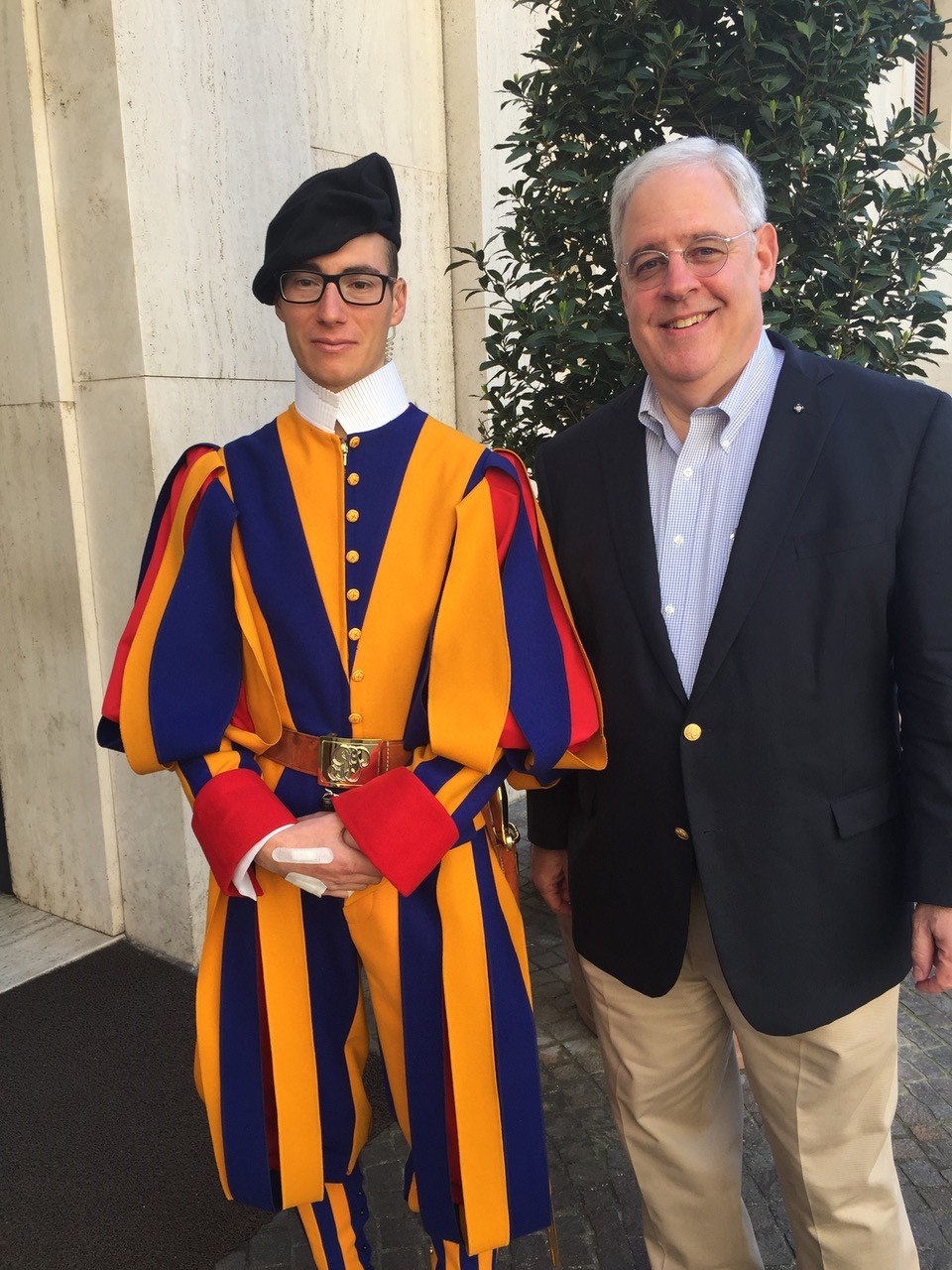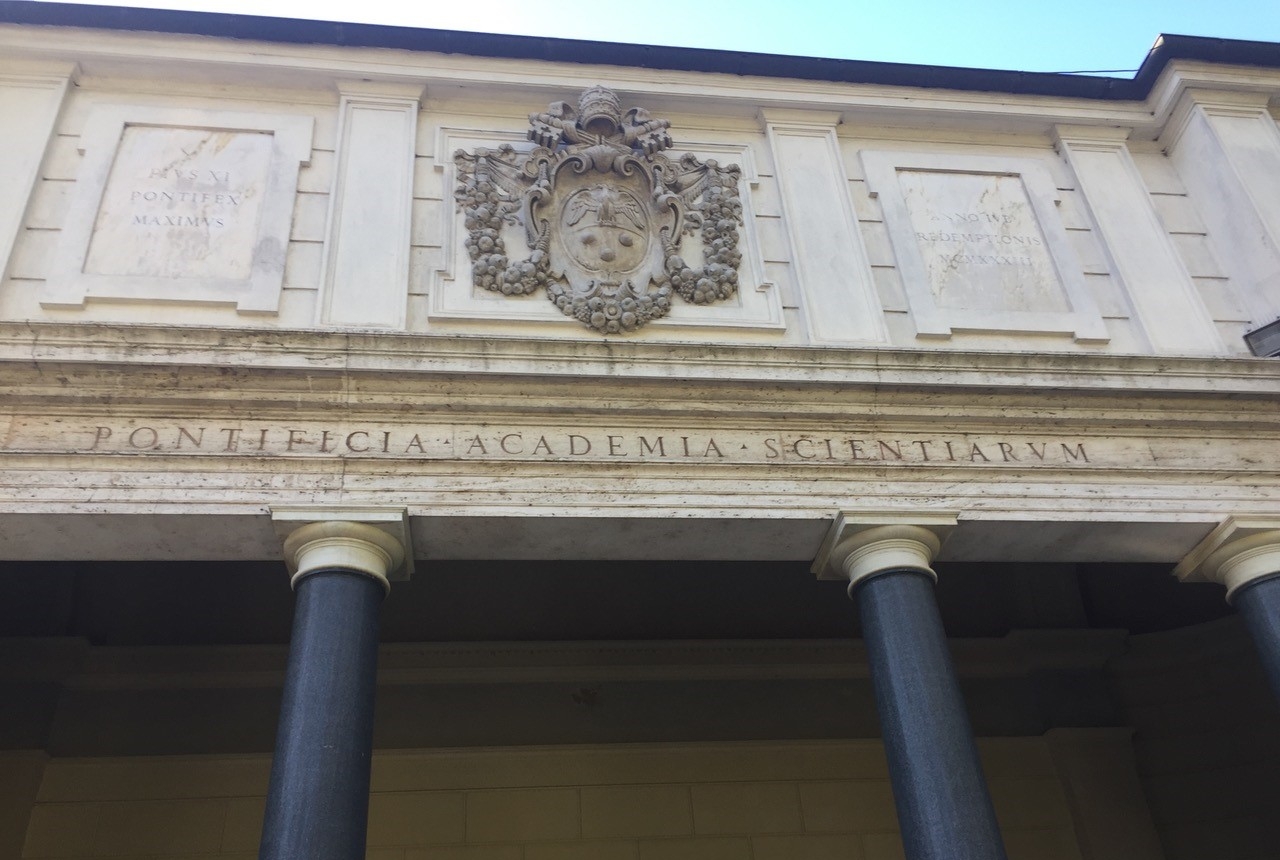Dr. Joseph J. Fins, chief of the Division of Medical Ethics and the E. William Davis, Jr., M.D. Professor of Medical Ethics and professor of medicine at Weill Cornell Medicine, was among an elite group of scholars invited to attend the Pontifical Academy of Sciences’ workshop on personalized medicine on April 8 and 9 in Vatican City.
The workshop, “The Revolution of Personalized Medicine: Are We Going to Cure All Diseases and at What Price,” brought together 15 world leaders in biomedical sciences and ethics to tackle the ethical complexities associated with personalized medicine, an approach that aims to determine individual variability—often at the genomic level—in treating patients.
The meeting, which was chaired by Aaron Ciechanover, Nobel laureate in chemistry, examined issues such as the cost of personalized medicine, how to govern science and how to ensure ethical standards keep pace with technological advances in medicine.
Participants included Eric Lander, president and founding director of the Broad Institute of MIT and Harvard, Jenny Reardon, professor of sociology at the University of California, Santa Cruz, and Dr. Leroy Hood, world-renowned biologist and recipient of the U.S. National Medal of Science and Lasker Award.

Dr. Joseph Fins with a Vatican Swiss Guard in front of the Domus Sanctae Marthae, the residence where Pope Francis lives and where guests of the Vatican stay. Photo courtesy of Dr. Fins.
Dr. Fins, an internationally recognized leader in medical ethics and the neuroethics of disorders of consciousness, discussed the need for a personalized approach to diagnosing and treating patients with severe brain injury. Drawing an analogy to phenotype (how patients appear) and genotype (their underlying biology) so important in personalized medicine, Fins noted that patients with severe brain injury who appear the same on clinical examination may be different biologically when undergoing a brain scan.
Neuroimaging tests can reveal that a patient who clinically appears to be in a vegetative state—meaning there is no brain function beyond basic reflexive activity—may in fact be minimally conscious, a state characterized by the presence of higher function. Their brain circuitry reveals awareness even though their exam suggests they are not, creating uncertainty for caregivers who have to grapple with this new knowledge.
“With disorders of consciousness, we are in a transition phase between traditional behavioral criteria and a fuller understanding of the circuitry that might better characterize these conditions,” Dr. Fins said at the conference, which will be documented in a conference proceedings volume and accompanied by a Papal statement. A book based on the presenters’ papers is also planned.
Dr. Fins, who also co-directs the Consortium for the Advanced Study of Brain Injury (CASBI) at Weill Cornell Medicine, noted that incorrect diagnoses in these cases can have profound ethical and clinical implications. If minimally conscious patients are wrongly thought to be in a vegetative state, they could be deprived of pain medication. Or caregivers might not make attempts to communicate with them, or provide rehabilitation or emerging treatments, falsely thinking that such efforts would be futile. Also, there are major implications for end of life decisions. Dr. Fins noted that such scenarios may be more common than realized, since a landmark paper found that 41 percent of patients with traumatic brain injury diagnosed as being in a vegetative state were actually in a minimally conscious state.
“As a result of our gains in knowledge, we now have a set of questions and challenges that simply didn’t exist before,” he said. “This will require a new personalized approach to how we care for patients and support their families.”

